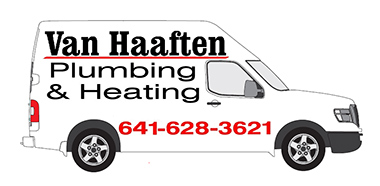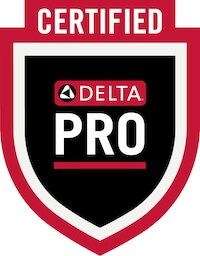
To avoid rising energy costs and work toward a more sustainable life, many homeowners are trying new methods to maintain comfort levels while using less energy. With help from the Inflation Reduction Act, federal tax credits are available for high efficiency HVAC equipment. These credits offer significant savings, as long as the homeowners use qualifying equipment and submit the appropriate form.
If you’re worried about a long, complicated process, we can share something that will help! Van Haaften Plumbing & Heating hopes this guide will give you everything you need to earn these HVAC tax credits in 2024. Here’s what you should know.
How Do These Tax Credits Work?
These valuable tax credits for energy-efficient home improvements are just one portion of the recent Inflation Reduction Act. With the higher cost of energy making an impact, helping more homeowners upgrade their equipment is always beneficial. The main intention of these credits is to mitigate costs associated with installation and renovation projects. Two of note are the Energy Efficiency Home Improvement Credit and the Residential Clean Energy Credit.
But remember, in order to earn any of the credits, you’ll need a completed IRS Form 5695. Additionally, this form needs to be submitted for the same tax year the upgrades were installed, not bought.
Energy Efficiency Home Improvement Credit
Through 2032, the Energy Efficiency Home Improvement Credit provides up to $3,200 every year for installing higher efficiency home upgrades. This amounts to 30% of the total project’s cost. It's important to note in order to get back the maximum amount, it means making severel investments. For example, you’ll save up to $2,000 for installing a higher efficiency heat pump. This can be paired with an additional $1,200 in credits for more projects in the tax year.
While new heat pump installation projects are a great use of the program, other HVAC upgrades like efficient furnaces and air conditioners also qualify. You’ll need to confirm the make and model’s energy efficiency rating is high enough for eligibility.
Residential Clean Energy Credit
The Residential Clean Energy Credit offers 30% savings on a wide range of residential clean energy efficiency projects. Eligibility is restricted to homeowners looking for new clean energy solutions for their home. While the Home Improvement Credit focuses on utilities and HVAC systems, this credit targets renewable energy sources like solar and wind energy.
Some specific items in this tax credit include requiring the installation project to be finished between 2022 and 2032. But at the same time, homeowners can use any excess credit to reduce taxes in future years. This is a great way to make things a little easier when investing in renewables.
What Else Is Eligible for These Tax Credits?
Because HVAC systems are one of the major reasons for high energy bills, these tax credits incentivize the most energy-efficient options. But home energy efficiency can be improved in many other ways. Apart from the previously listed HVAC upgrades, {you could also choose|other eligible items include|you also have access to:
- Heat pump water heaters
- Modern electrical panel improvements
- New electrical wiring
- Insulation, air sealing and ventilation enhancements
- High-efficiency electric stoves, cooktops, ranges or ovens
- Heat pump clothes dryers
- Water boilers
Just like with installing one or more HVAC systems, you’ll need to confirm that your preferred make and model features the eligible energy efficiency ratings.
Maximizing Your 2024 HVAC Tax Credits: Top 3 Tips
While any of these upgrades can enhance your home's energy performance, a little planning will ensure they offer the most long-term benefits. Get the most from your HVAC tax credits with the following three tips:
- Perform an energy audit to pinpoint valuable enhancements. Trust experienced HVAC companies to pinpoint essential products and services.
- Install new high efficiency windows and doors.
- Explore potential rebates from utility companies for clean energy upgrades. Renewable sources like solar, wind, and geothermal contribute to community power grid sustainability.
- Remember to consider financing plans offered by service providers.
Secure Your 2024 HVAC Credits with Help from Van Haaften Plumbing & Heating
Partner with local HVAC professionals like Van Haaften Plumbing & Heating for help with home energy audits and new installation projects. Our seasoned installers can deliver whatever you need for a more energy-efficient home.



